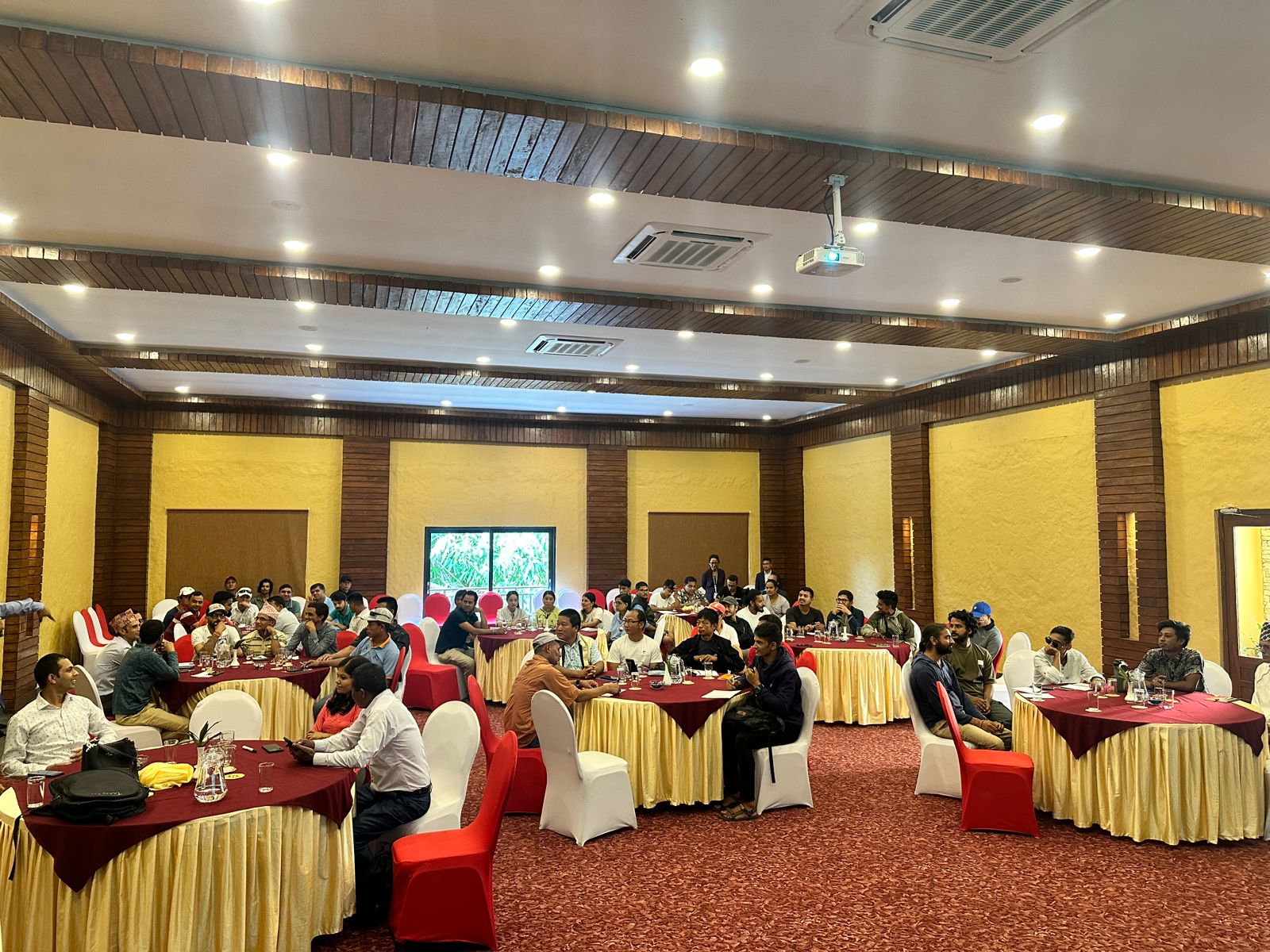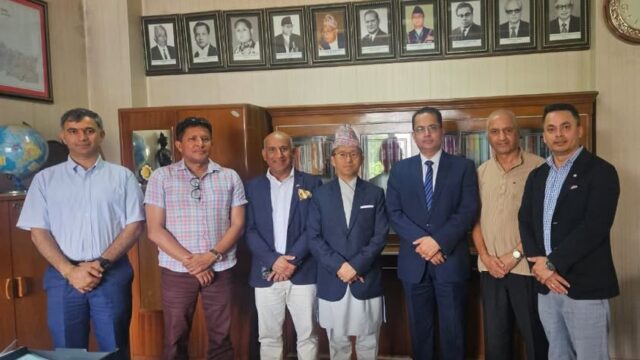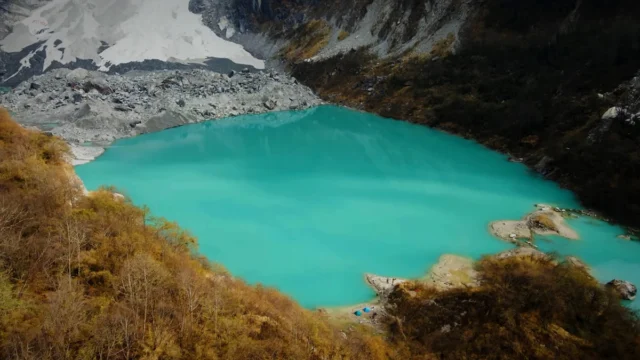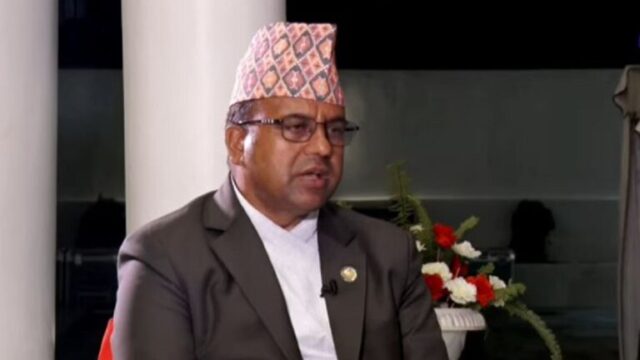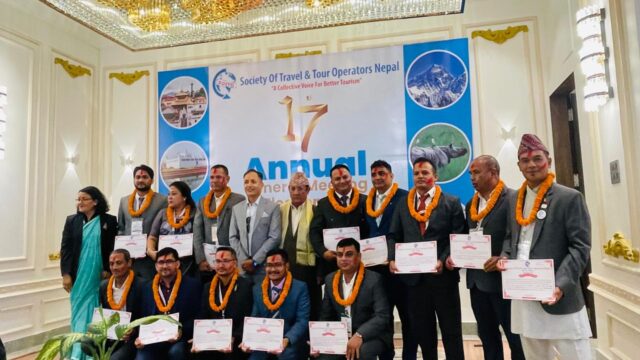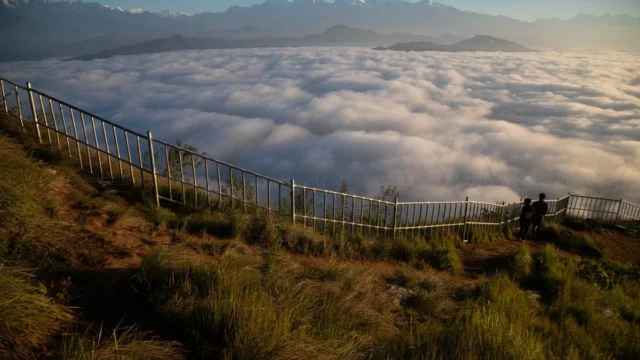The Trekking Agencies Association of Nepal (TAAN) Gandaki Chapter, in collaboration with USAID Biodiversity’s JalJangal Program, has launched a project aimed at promoting eco-tourism and contributing to the conservation of biodiversity in trekking and mountain tourism destinations. The project, titled “Engagement of Trekking Tourism Entrepreneurs in Biodiversity Conservation,” focuses on involving trekking professionals in the preservation of Nepal’s rich biological diversity.
As part of this initiative, a one-day awareness program was conducted on September 18, 2024 (Ashoj 2, 2081) at Barpipal Resort in Pokhara. The session aimed to educate trekking guides, porters, and other stakeholders on the importance of environmentally friendly tourism practices and the prevention and mitigation of environmental crimes related to tourism. The event was the first in a series of awareness programs designed to promote sustainable tourism and encourage responsible practices in the trekking industry.
The program covered various topics, including sustainable tourism practices, ways to reduce the environmental impact of trekking, and strategies for preventing environmental crimes such as illegal wildlife activities and deforestation in trekking regions. Participants were encouraged to adopt eco-friendly approaches that would help preserve the fragile ecosystems of Nepal’s trekking destinations.
This awareness initiative reflects TAAN’s commitment to fostering a sustainable tourism industry in Nepal, ensuring that the natural environment remains protected while supporting the livelihoods of those involved in trekking tourism. By raising awareness among trekking professionals, the project aims to create a more environmentally conscious tourism sector that balances economic benefits with the need for biodiversity conservation.
The USAID JalJangal Program focuses on promoting sustainable development while protecting Nepal’s diverse ecosystems, and its partnership with TAAN is a key step in engaging the tourism industry in conservation efforts. This collaboration is expected to have a long-term impact on the preservation of Nepal’s natural heritage while enhancing the quality of tourism experiences for visitors.
TAAN Gandaki has planned to conduct more sessions in the future, targeting various stakeholders in the tourism sector to further strengthen the relationship between eco-tourism and biodiversity conservation. The ultimate goal is to ensure that Nepal’s trekking and mountain tourism sectors continue to thrive in a way that is both economically and environmentally sustainable.
